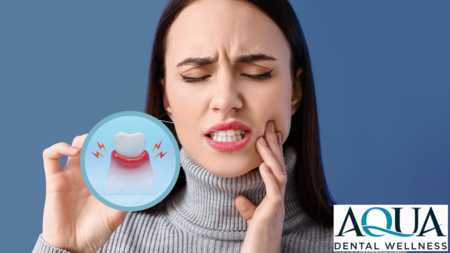How to Treat Dental Emergencies at Home Before Seeing Your Dentist

Dental emergencies can occur during inconvenient hours, such as when the dental office is closed or when you are on vacation.
The extent of the damage can depend on how soon you address the issue. The sooner you act, the better chance you have of keeping the damage from progressing. But, of course, you need to have basic knowledge about the safe steps to take.
In this article, we discuss common dental emergencies and what you can do at home before seeing the dentist. Let's begin.
-
Severe Toothache
Toothaches can sometimes be managed at home. However, emergency care might be necessary if the pain persists, gets worse, or comes with other symptoms like swelling.
Start with rinsing your mouth thoroughly with warm salt=""water and brushing and flossing to get rid of any particles that may have become stuck.
Applying a cold compress to the cheek can also reduce swelling. Avoid applying aspirin directly to the area, as it can cause burns.
-
Knocked Out Tooth
If you knock out a tooth, pick up the crown or the visible part of the tooth, rinse it off with plain water, and submerge it in milk.
If the tooth is dirty, clean it with running water, but don’t brush or scrub it. Try to put the tooth back into the socket. If this is not possible, leave it in a glass of milk.
Reaching the dental office within an hour is ideal for restoring the knocked-out tooth.
-
Broken Wires and Braces
The metal wires used for braces are tough, but they can break and poke your gums and cheeks. This can be uncomfortable; however, make sure not to cut the wire, as you might end up inhaling or swallowing it.
Instead, you may use the eraser at the end of a pencil to put the wire back in place or push it into a more comfortable position. Alternatively, you may also use orthodontic wax to cover the end of the wire until you get to the dental office.
-
Dental Abscess
An abscess is an infection in the mouth. It contains pus, which results in swelling. Without immediate treatment, the infection can spread to the surrounding teeth. An abscess resembles a pimple and can be painful.
Avoid drawing out the pus. Instead, rinse your mouth with a saltwater solution and schedule an evaluation with your dentist. You can apply an ice pack or cold compress to reduce the swelling and discomfort.
-
Chipped or Broken Tooth
In the case of a knocked-out tooth, try to save the pieces of the tooth. Though, be careful not to touch the roots. Rinse the pieces with clean water and place them in a glass of milk.
Apply gauze to the area if there’s bleeding. Use a cold compress to minimize swelling and pain. The goal with chipped or broken teeth is to save the broken parts and take them to the dentist as soon as possible.
-
Damaged or Lost Dental Restorations
While waiting to see your dentist, you may try restoring the lost filling or crown to the area using sugarless gum.
You may also try putting the crown back on the tooth using dental cement to keep it in place. Never use random adhesives at home.
Otherwise, take the broken dental restoration to the clinic so your dentist can reapply it or give you a new one, if necessary.
-
Severe Soft Tissue Injury
The soft tissues in the mouth consist of the lips, gums, cheeks, and tongue. They can get injured and bleed profusely because they’re made of blood vessels.
Injuries can be in the form of bruises, cuts, or punctures. They can occur when you bite down on hard food or when your mouth is exposed to extreme pressure.
Use warm salt=""water to rinse your mouth and apply gauze to control the bleeding. Reapplying a cold compress to reduce swelling or pain can also help. The goal is to control the bleeding and minimize swelling until you see your dentist.
Emergency Dentistry Services in Winnipeg, MB
Handling dental emergencies at home means taking first-aid measures to keep the problem from progressing.
The dental office isn’t open 24 hours a day, so you might need to head to the emergency room during certain hours. Keep the contact information of your dental office handy so you can reach them right away should any issue arise.
It’ll be easier and faster for a dental team to offer advice if they’re familiar with your oral health and general health history. You may find yourself hesitant to contact a dentist thinking you don’t need immediate care. But it’s better to be sure and confirm the best steps to take.
For dental emergency services in Winnipeg, MB, contact us at Aqua Dental Wellness. Let’s get you out of pain and book you in for a dental appointment as early as possible.